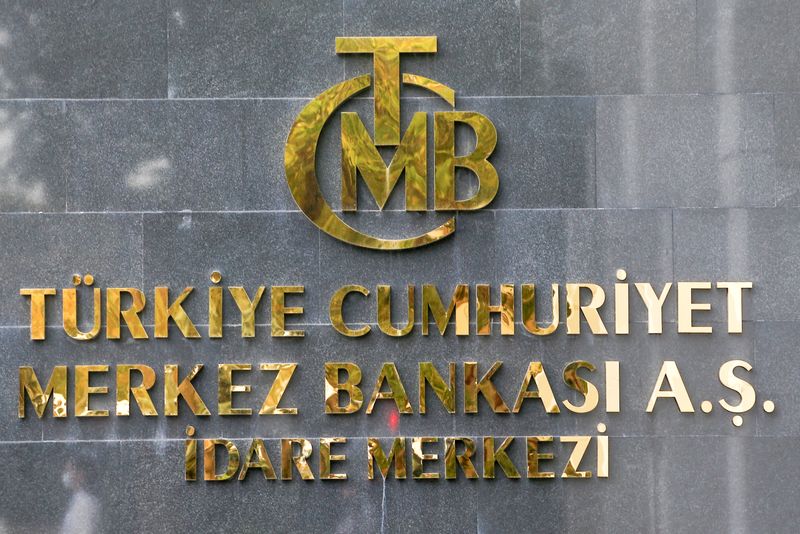ISTANBUL (Reuters) -Turkey's central bank is expected to cut its policy rate by 100 basis points to 11% next week, a Reuters poll showed on Friday, after President Tayyip Erdogan called for more easing each month and said rates should be single digits by year-end.
The central bank has shocked the markets twice in the past two months by cutting its policy rate by 100 basis points each time, lowering it to 12%, despite inflation soaring above 83% in September.
Monetary easing is part of Erdogan's unorthodox economic programme that seeks to boost growth, investments, employment and exports by lowering borrowing costs, especially for exporters and small and medium-sized companies.
The president, who has great influence over the central bank, gave even more explicit policy direction earlier this month when he said the bank would continue cuts every month "as long as I am in power".
Thirteen out of 20 economists that participated in the Reuters poll predicted the bank would lower its policy rate to 11% at its meeting on Oct. 20. Six predicted it would hold steady at 12%, while one forecast a cut to 11.50%.
Turkey's recent monetary policy decisions have not been based on "conventional economic principles", said Credit Suisse.
"The authorities will probably continue to implement ad hoc measures as long as they can in order to sustain what we view as this ultimately unsustainable policy stance," it said in a note.
"The timing of a conventional policy adjustment will also crucially hinge, in our view, on political considerations, in particular the presidential/parliamentary elections that will be held no later than in mid-2023," it added.
Inflation has surged since November 2021 after the central bank embarked on an easing cycle that saw rates lowered by 500 basis points between September and December last year.
The cuts triggered a currency crisis and the lira ended the year down 44% against the dollar, stoking inflation. The currency is down another 29% this year.
A median estimate of 23 economists for inflation at year-end stood at 72.5% in the Reuters poll, compared to the government's forecast of 65%. Economists saw it declining to 40.5% by the end of 2023.
One of the main aims of Erdogan's economic programme is to flip Turkey's current account deficit to a surplus, which Ankara says will eventually lower inflation.
However, soaring global energy and commodity prices as well as an expected slowdown in exports have made that target all but unattainable. The government does not foresee a surplus in the next three years.
The current account deficit was seen at 6.5% of gross domestic product (GDP) this year and 4.0% next year, according to the median estimate of 17 economists, compared with the government forecasts of 5.9% and 2.5%, respectively.

GDP growth was seen at 5.0% this year and 3.0% next year, based on 34 economists' forecasts.
(Click for more stories from the Reuters global economic poll)
(Polling by Milounee Purohit; Writing by Ali Kucukgocmen; Editing by Jonathan Spicer and Hugh Lawson)